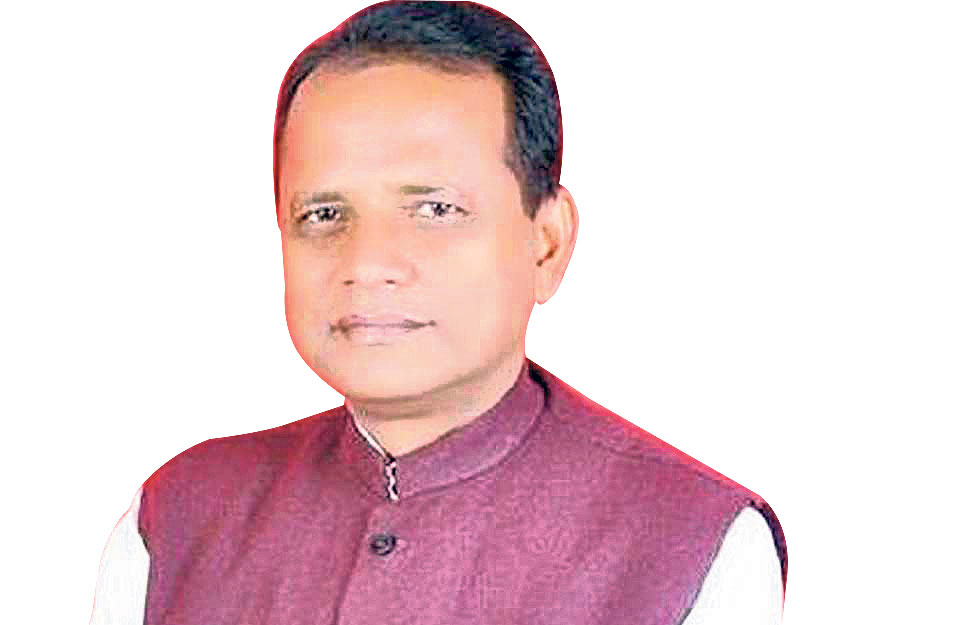
OR
Province 2 ready to retaliate if federal govt obstructs exercising constitutional rights: CM Raut
Published On: January 5, 2019 08:47 AM NPT

KATHMANDU, Jan 5: The federal and provincial governments are at loggerheads over some issues including the delay in arranging civil servants for the provincial governments and exercising constitutional rights since the country adopted the federal setup. Fresh disputes have emerged between the two governments after the federal government introduced a bill for internal security arrangement. The bill has mandated the Chief District Officer to coordinate among the federal, provincial and district administrations for maintaining peace and security.
Republica Correspondent Suresh Yadav spoke to Province 2 Chief Minister Mohammad Lalbabu Raut about the ongoing disputes between the two governments. Excerpts:
People's expectations of the federal, provincial and local governments are high. How are you coordinating among various levels of governments?
The provincial governments are now in place in all provinces. But it seems the federal government has adopted a policy to make the provincial governments dysfunctional. Thus, there is an urgent need for coordination and cooperation among the three levels of governments. In fact, we are facing the problem due to federal government, which actually is supposed to play the role of a guardian for all other governments. For instance, we have introduced the Police Act. Legally, it has to be implemented immediately. But the federal government did not set the required criteria for implementing the provincial Police Act.
Apart from that, our provincial cabinet has just forwarded a law related to a provincial public service commission to the provincial assembly. For the effective implementation of this law, the federal government should fix the required criteria before the formation of the provincial public service commission. The spirit of federalism is to have own rule and administration in the provinces. Our efforts to bring local youths into civil service are being delayed because of non-cooperation from the federal government.
You talked about the delay in formulating laws due to slow response from the federal government. What are you doing in the area of development?
Politicians formulate policies for development although their implementation largely hinges on the civil servants. Currently, the provincial government is facing an acute shortage of civil servants. Many civil servants are willing to work under Province 2 and perform their responsibilities. But the federal government is not sending them to this province. The civil servants who are to retire soon don't want to come here. The federal government wants to send those unwilling civil servants to us.
The general administration ministry has its own policy of transferring civil servants. Why is Province 2 complaining about it, while other provinces have stayed mum?
I had a six-hour long meeting with the prime minister. Other chief ministers also shared their grievances in that meeting. I don't think there are no problems in other provinces. The chief ministers themselves are expressing their grievances loud and clear. It's not clear why others are not sharing their problems clearly. Going by what the chief ministers have shared informally, I believe the federal government wants to weaken the provincial governments. It's our common understanding. Rulers, who feel federalism is a burden, want to foil it when there is [favorable] political change in the country. They are skeptical that the people will snatch their powers. That's why they are hatching a conspiracy against implementing federalism in a full-fledged manner.
Recently the government has introduced a bill related to internal security. What is your take on this bill?
The Internal Security Bill is against the spirit of federalism and constitution. It is a ploy to deprive the marginalized communities of their rights. The Internal Security Bill and several other bills being discussed are against the spirit of federalism. The security related bill has been floated to give continuity to the Panchyat-era tendency. The provincial government will not accept Panchyat-era laws.
It's been long since the idea of deploying ~IAnchaladhis ~Iin the form of chief district officers was abolished. The continuation of the same idea in the federal republic structure is not acceptable. This bill will invite confrontation between the federal and provincial governments. It's not the solution. Given the context, we are planning to bring a bill related to the province's administrative rights. The annex of the constitution has listed police, federal administration and law and order as the top most priority. Province 2 is ready to retaliate if the federal government creates obstacles in exercising the constitutional rights under any pretext.
The provincial assembly has already endorsed the laws related to provincial police and hiring civil servants on contract basis. What's happening to implement these laws?
Laws do not come into implementation immediately after their formation. Regulations, working procedures and directives should be formulated for their implementation. We are in the process of implementing the provincial laws. The bill to recruit civil servants on contract basis was formulated as Plan B, given that the federal government was unable to adjust the civil servants in the federal setup. We hope that the federal government will arrange permanent staffers for us soon. If not, we will have to hire employees on contract basis once the provincial assembly endorses the bill.
You May Like This

Mysterious disease killing dogs in Norway
HELSINKI, Sept 8: Norwegian authorities haven’t been able to detect the cause behind an unexplained disease that is estimated to... Read More...

Cooperation urged between federal and local govts for durable reconstruction
KATHMANDU, June 12: Experts in the field of post-disaster recovery and reconstruction have prompted the federal and local governments to cooperate... Read More...

Complete education, full health could double Nepal's GDP per capita: WB
KATHMANDU, June 7: Nepal has the potential to double its Gross Domestic Product (GDP) per capita in the long run if... Read More...









Just In
- Forced Covid-19 cremations: is it too late for redemption?
- NRB to provide collateral-free loans to foreign employment seekers
- NEB to publish Grade 12 results next week
- Body handover begins; Relatives remain dissatisfied with insurance, compensation amount
- NC defers its plan to join Koshi govt
- NRB to review microfinance loan interest rate
- 134 dead in floods and landslides since onset of monsoon this year
- Mahakali Irrigation Project sees only 22 percent physical progress in 18 years









Leave A Comment